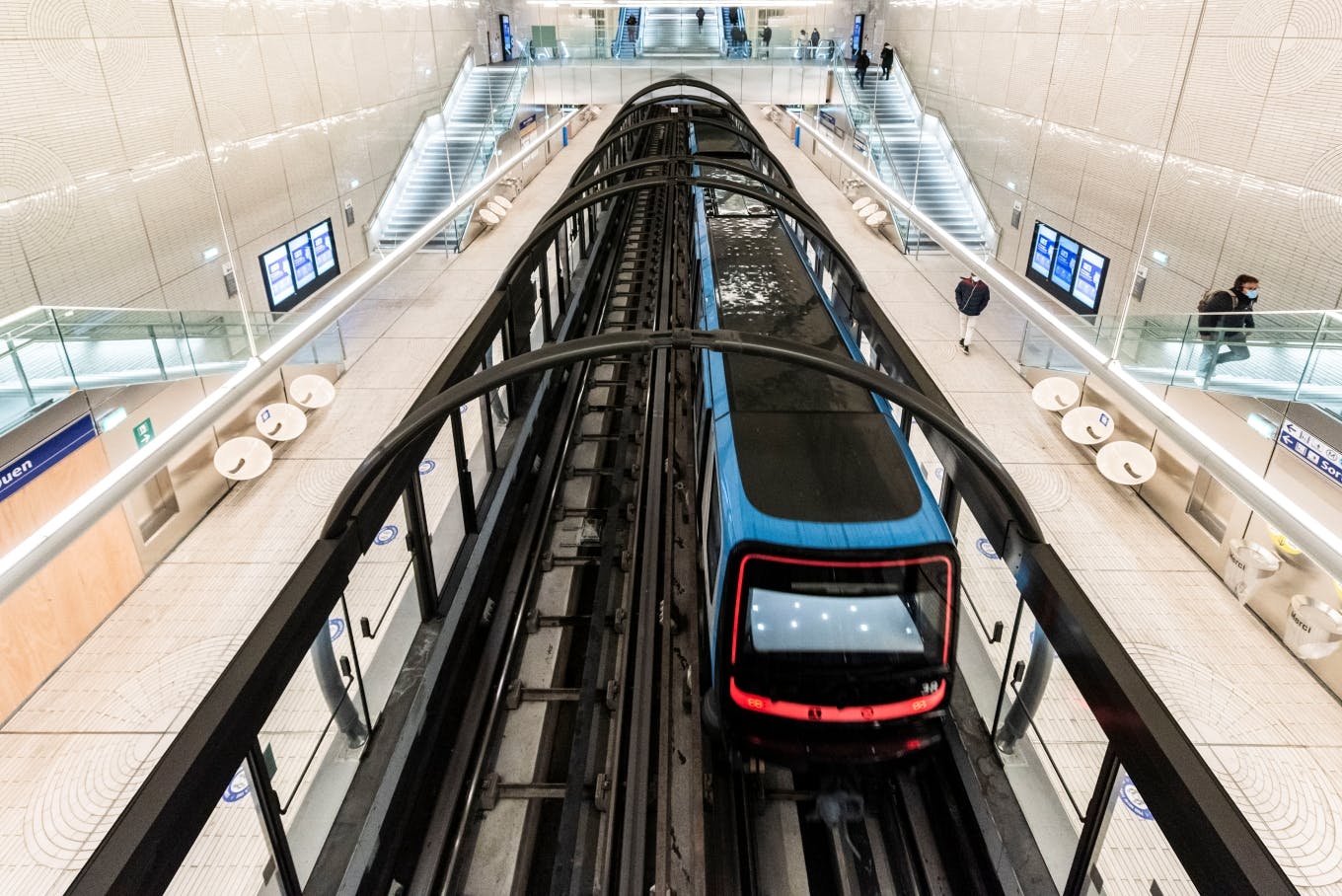File
Transport:
New Era
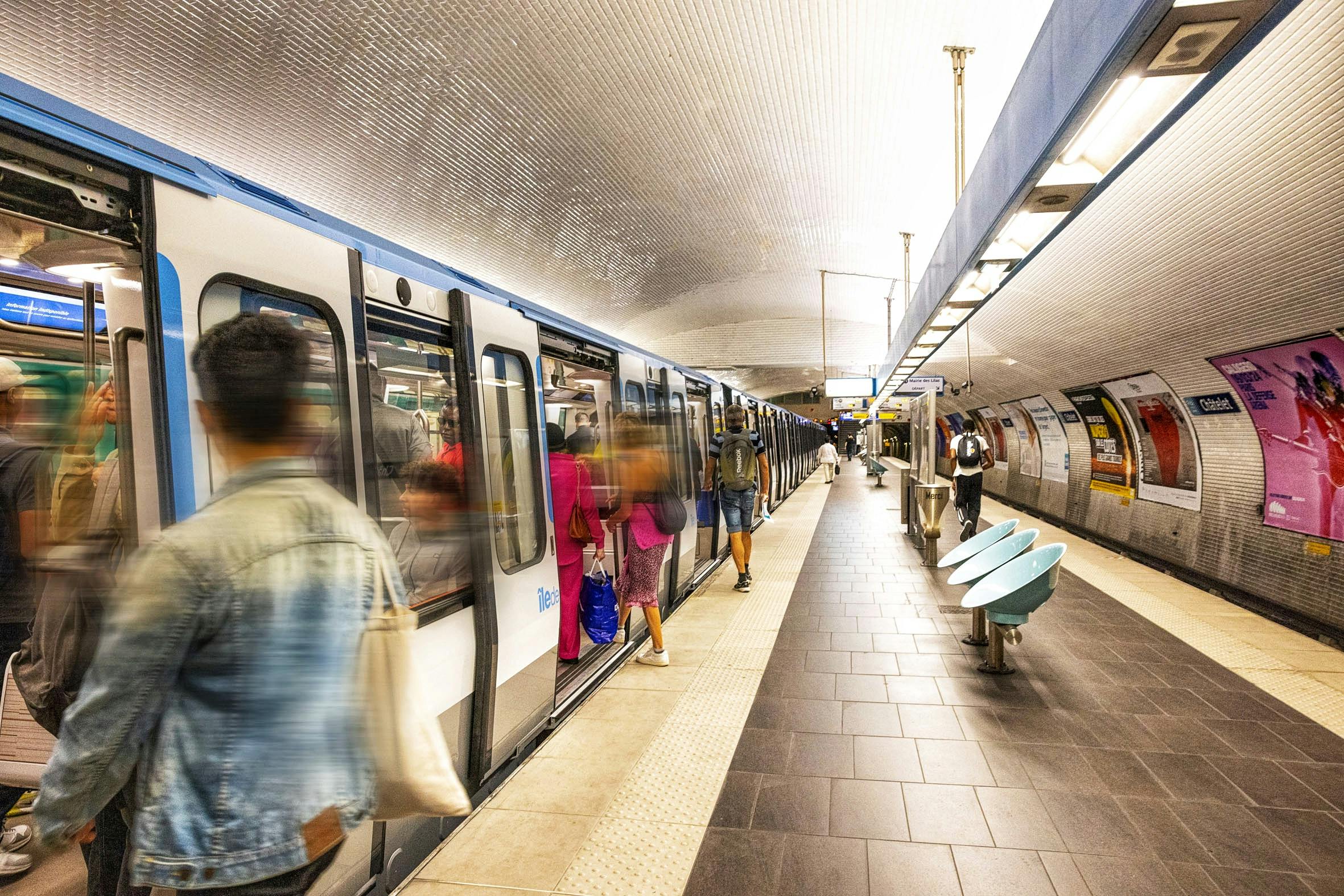
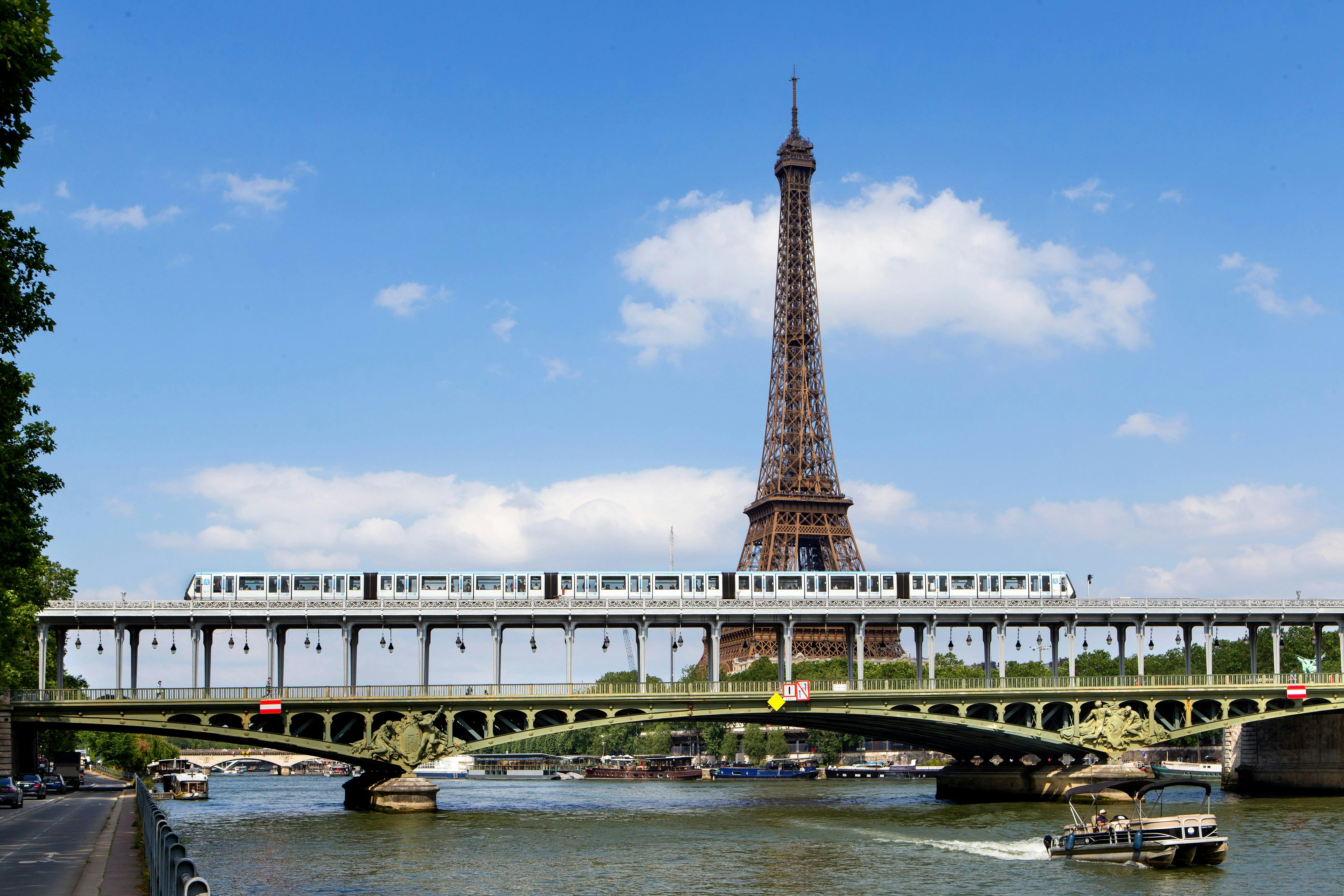
Every year, Île-de-France Mobilités devotes more than €3 billion to transforming your travel experience
These massive investments include the purchase and renovation of trains, RER, metros, buses and trams for a service that is not only more modern and safer, but also more reliable and comfortable.
On a daily basis, Île-de-France Mobilités works to enable environmentally friendly travel, integrating clean technologies and innovative designs that make each journey safer, more regular and accessible to everyone.
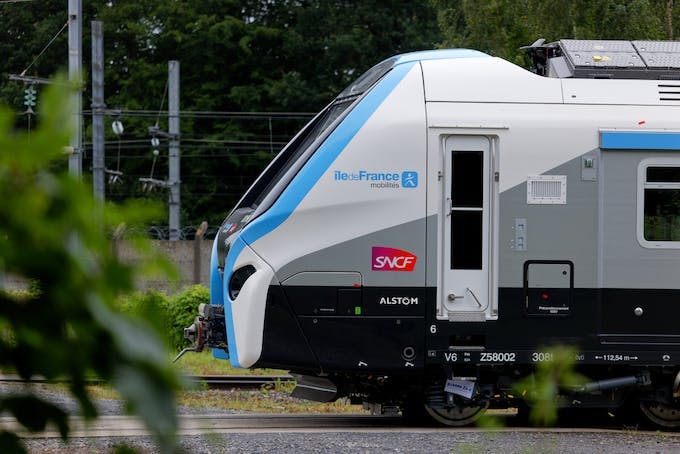
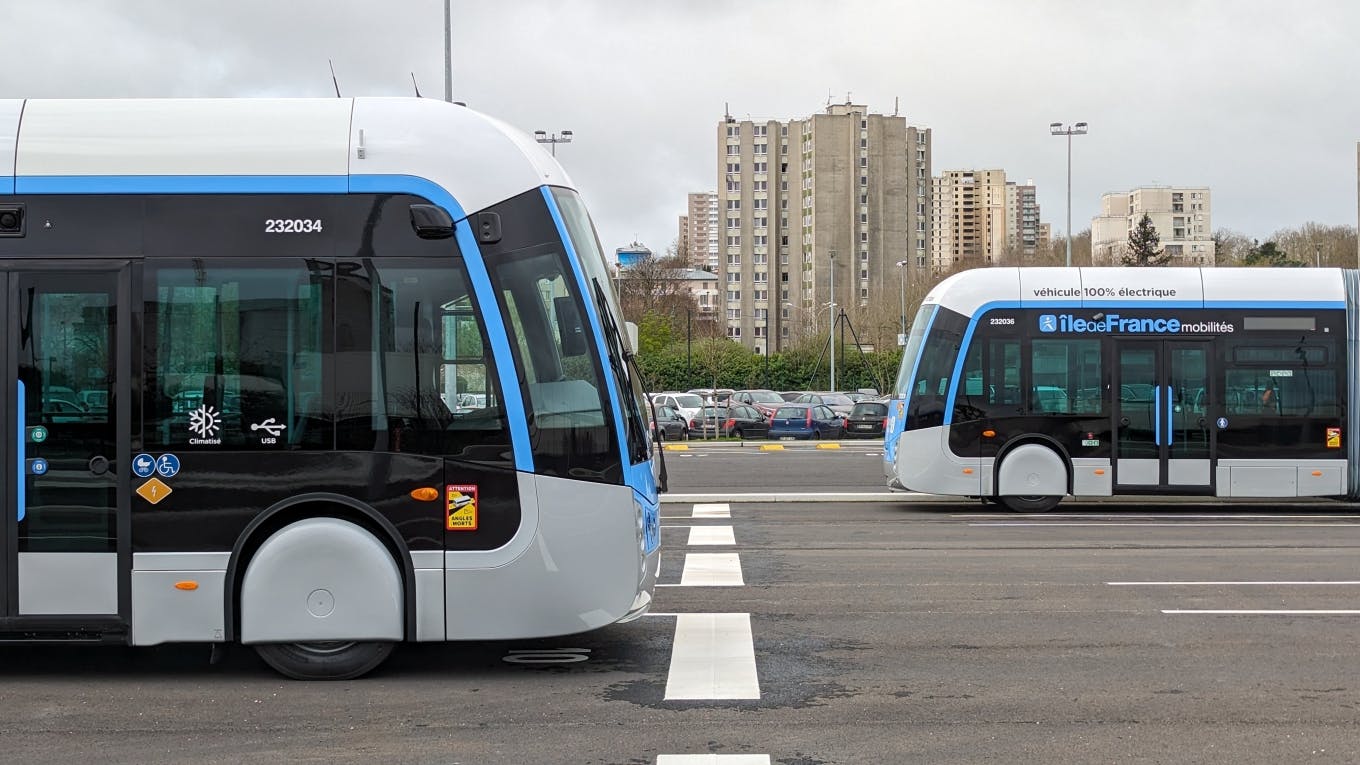
New rolling stock
In 2024, Île-de-France Mobilités plans to invest nearly €3 billion in new trains, buses, trams and metro for greater comfort, reliability and sustainability.
"By 2030, there will be €73 billion for new, video-protected, accessible trains, clean and more buses everywhere, extensions and new lines, as well as on-demand transport for rural areas. The size of the metro network will double! »
Valérie Pécresse, President of Île-de-France Mobilités and the Île-de-France Region
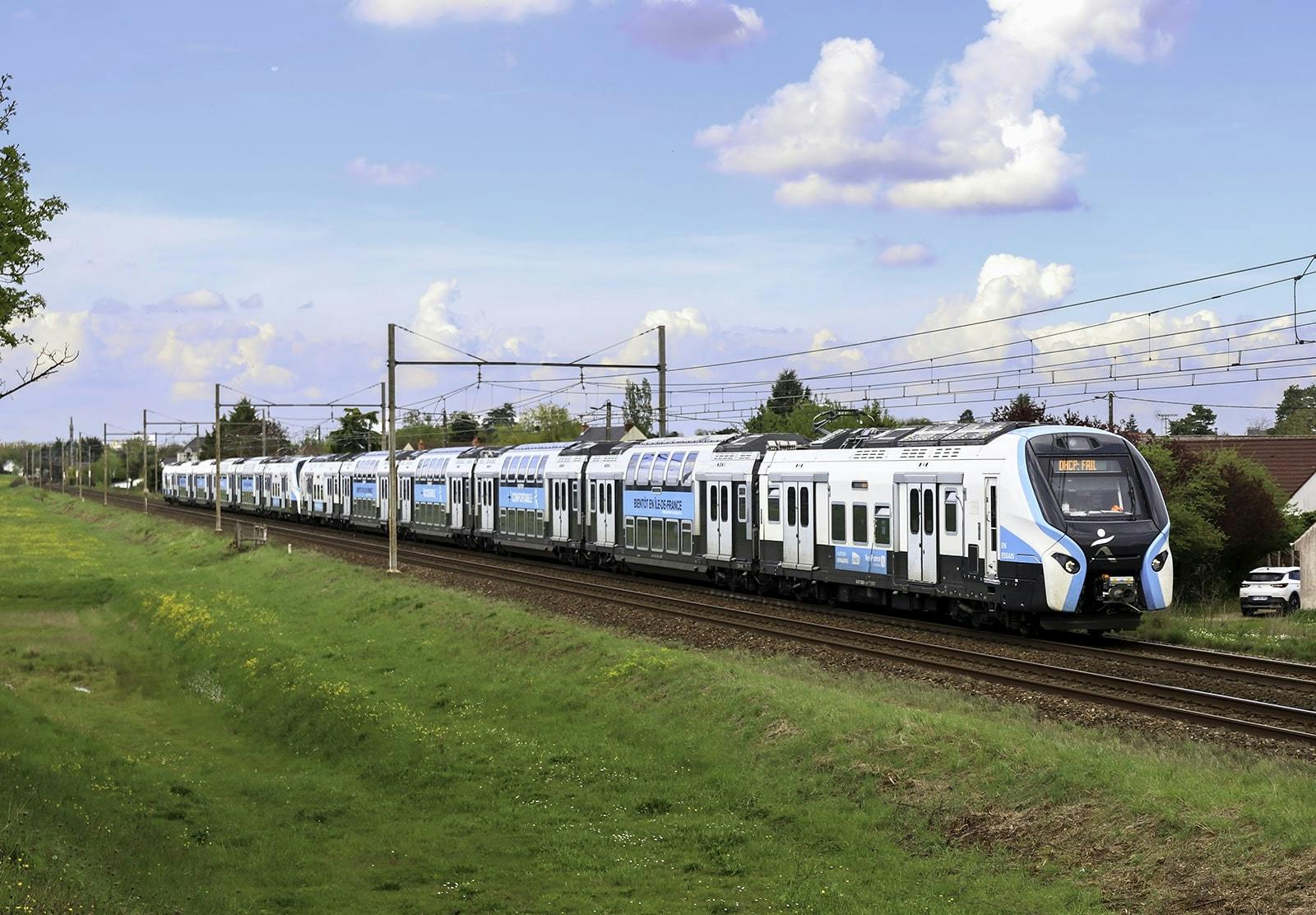
RER NG and MF19: a look at two new pieces of equipment that will change the way people travel for Ile-de-France residents
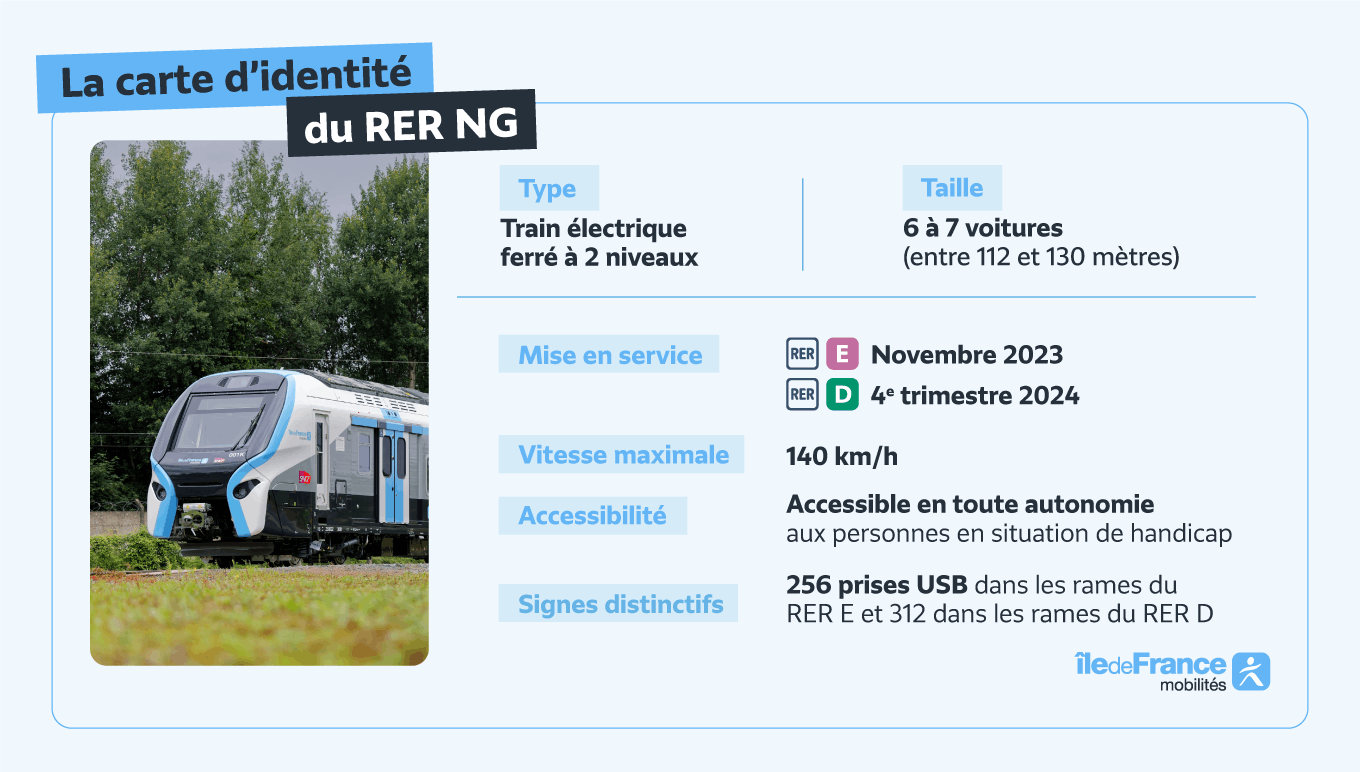
RER NG: the RER of the future has arrived
Reliable, secure, comfortable and, specifically designed for dense areas, the New Generation RER (NG) has been equipping the RER E line since autumn 2023. At the end of 2024, it will also run on line D.
The RER NG: new equipment with a high carrying capacity to improve the level of comfort offered to Ile-de-France residents and regularity on these two lines.
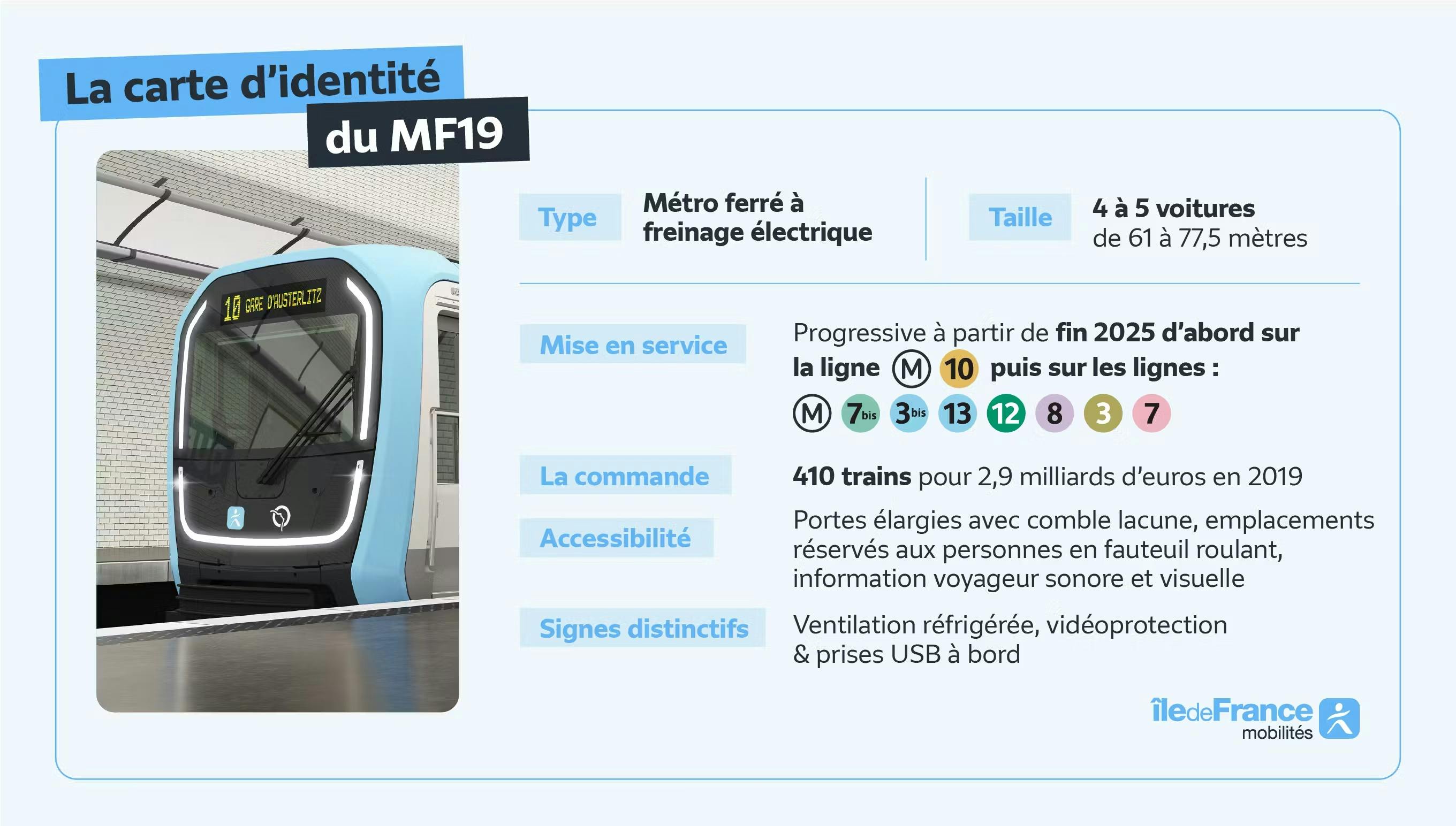
MF19: the Paris metro reinvented
From 2025, a new rail metro will arrive on lines 3, 3bis, 7, 7bis, 8, 10, 12 and 13. Accessible, reliable and incredibly versatile, the MF19 puts technology at the service of passenger comfort.
Automated metros, for + efficiency and reliability
With the automation of the metros, Île-de-France Mobilités aims to increase the efficiency and reliability of the network.
This automation is at the forefront of innovation. It is played out on several levels, ranging from driver assistance to a fully automated system, without a driver on board.
Île-de-France Mobilités plans to extend this advanced technology to the new Ile-de-France metro and envisages the automation of historic lines for a future where travel will be more fluid, regular and punctual.
After lines 1 and 14, it is now the turn of line 4 to be fully automated - a conversion that has taken place without ever stopping the operation of the line.
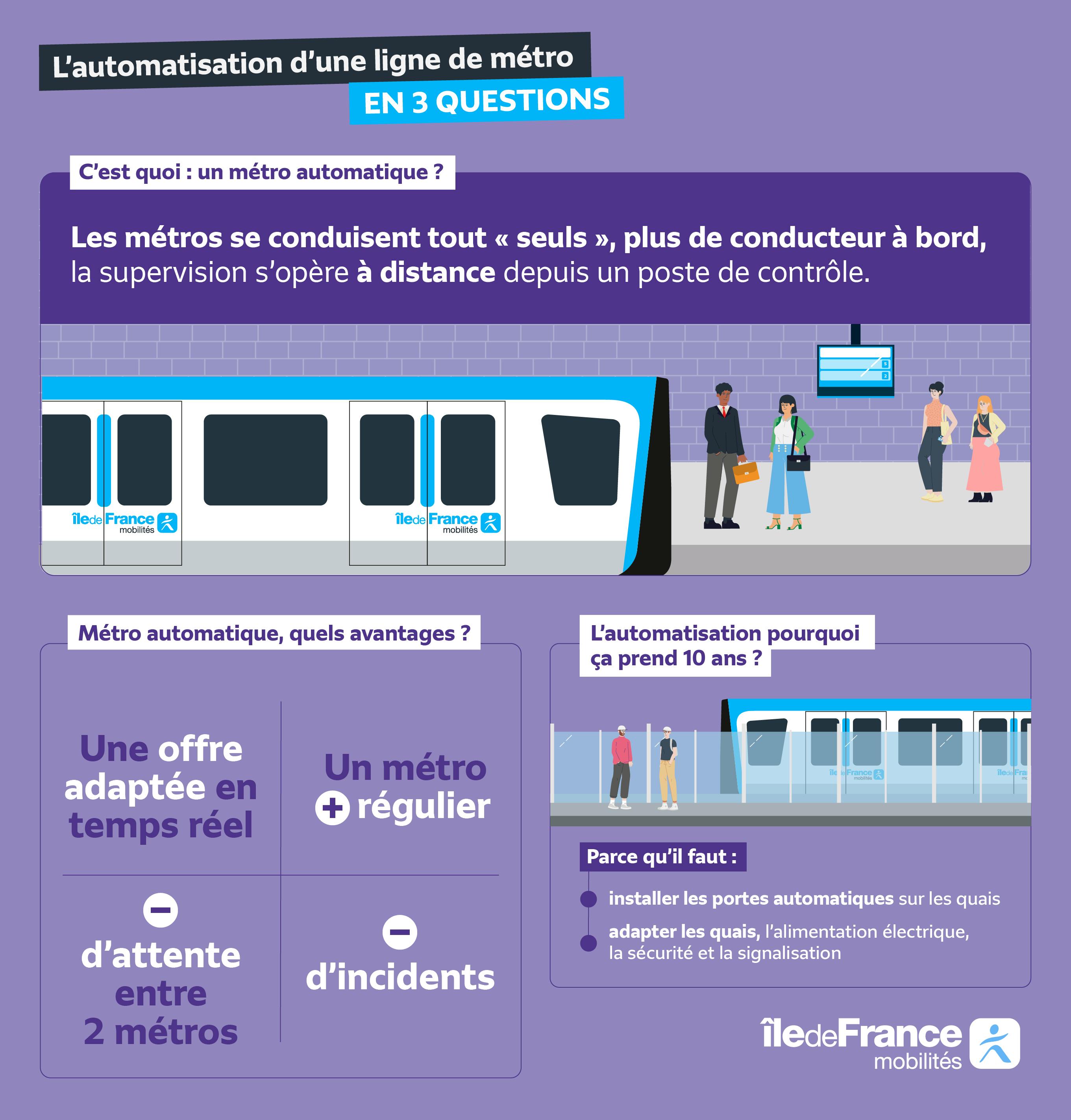
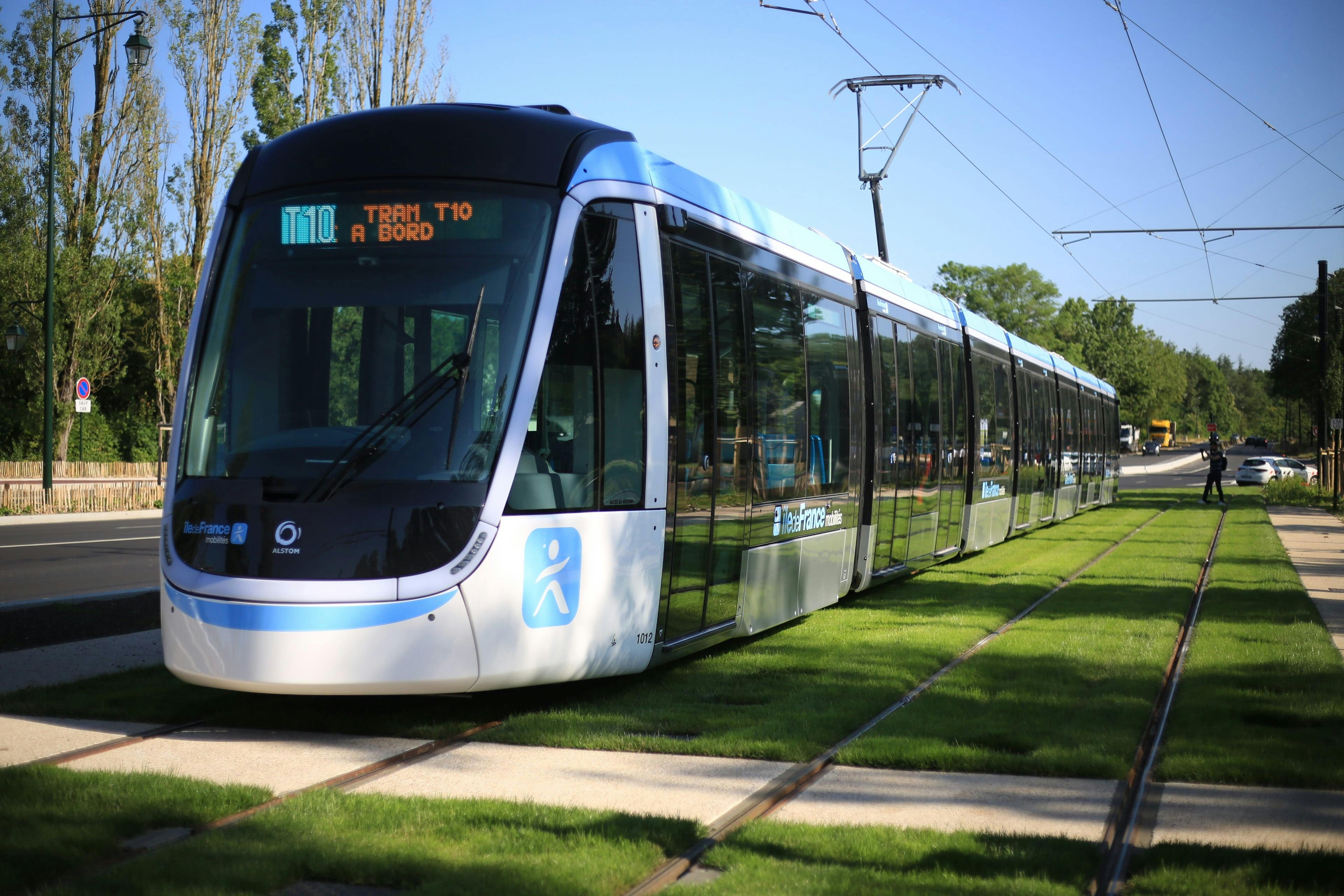
The return of trams in Île-de-France
Île-de-France Mobilités is convinced of the many advantages of the tram
This mode of transport combines respect for the environment, complete accessibility, and comfort, as well as a continuous service all week long. In less than 20 years, the trams of Île-de-France have exceeded one million passengers per day.
For Ile-de-France residents, the tram lines that irrigate the region allow for smoother travel, and a daily time saving for all those who travel, especially from suburb to suburb by avoiding a trip through Paris.
By rehabilitating part of the Grande Ceinture while reusing existing infrastructure to reduce the costs of the project, trams and tram-trains further enrich the mobility offer of Ile-de-France residents.
The advantages of the tram (and the tram-train)
- Environmentally friendly
- Soft mobility
- 100% accessible
-Comfortable
- Reuse, where possible, of unused parts of the national rail network
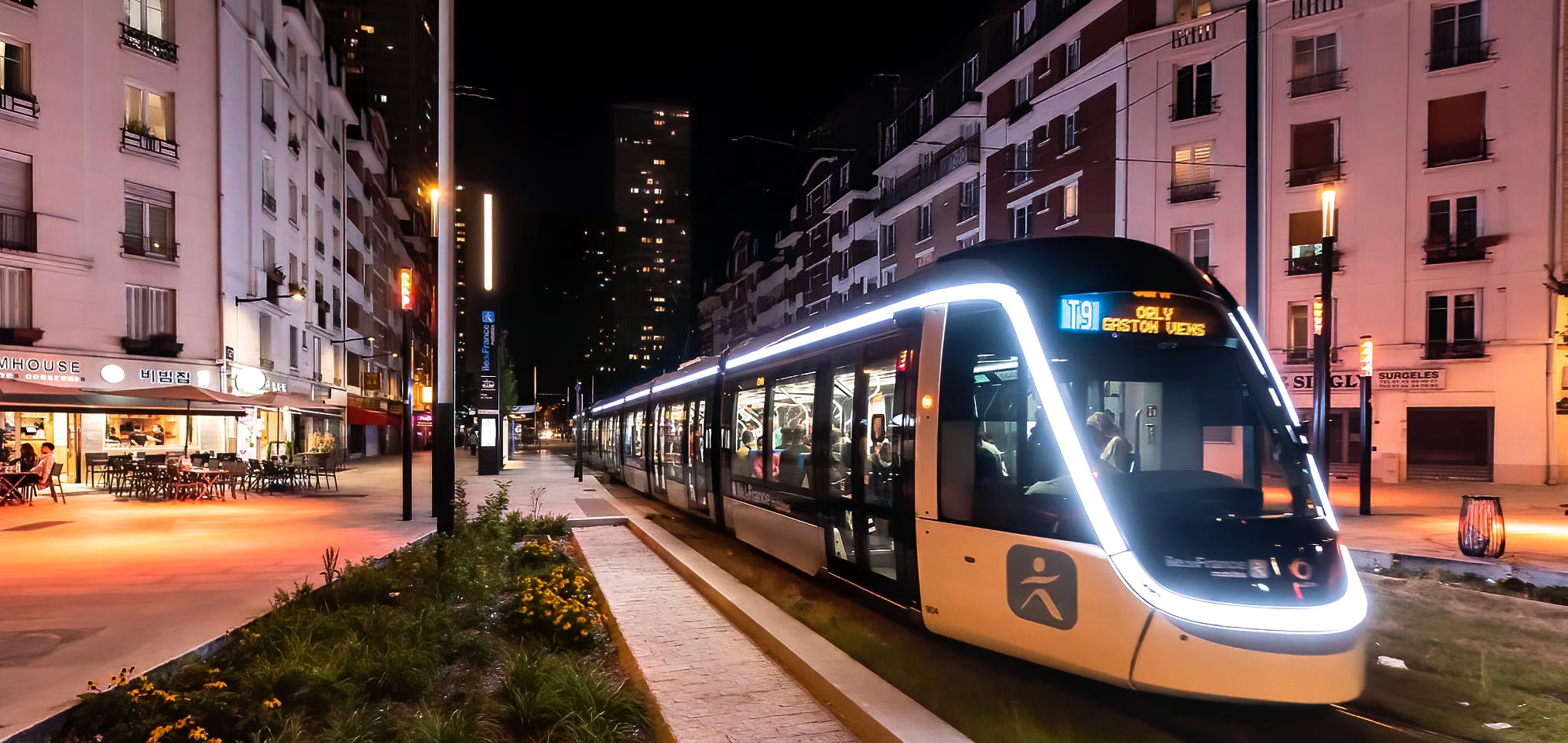
T12: discovering a tram-train
The tram-train is a 2-in-1 tram that runs both on conventional tram tracks, in urban areas, and on the tracks of the national rail network.
T9: the tram that lights up the city
Since its inauguration in April 2021, the T9 tramway has transported more than 70,000 passengers every day between Paris and Orly. The T9 is 22 accessible, comfortable and safe trains, but it is also an exterior design and an iconic light signature that have been chosen directly by the people of the Ile-de-France region.
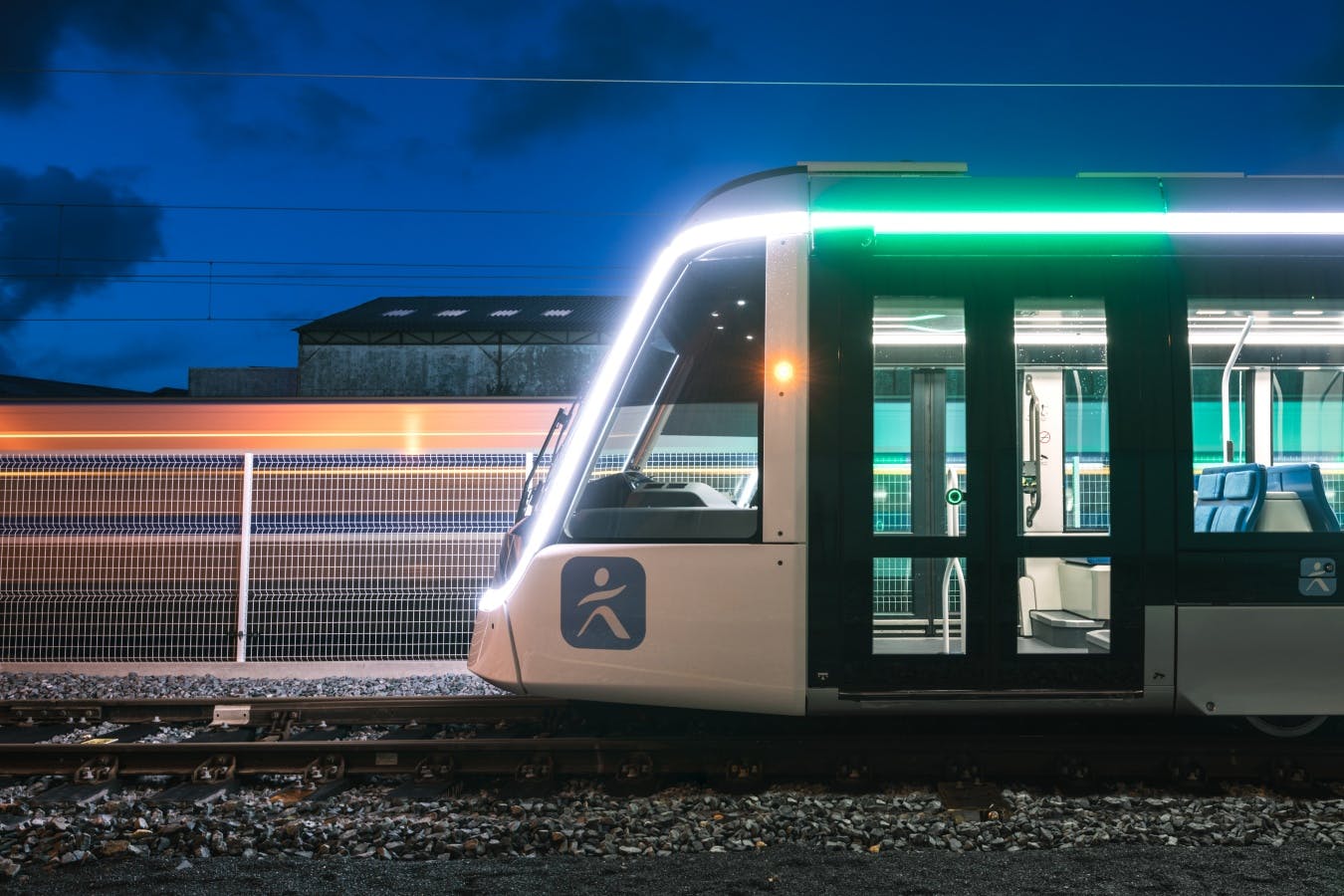
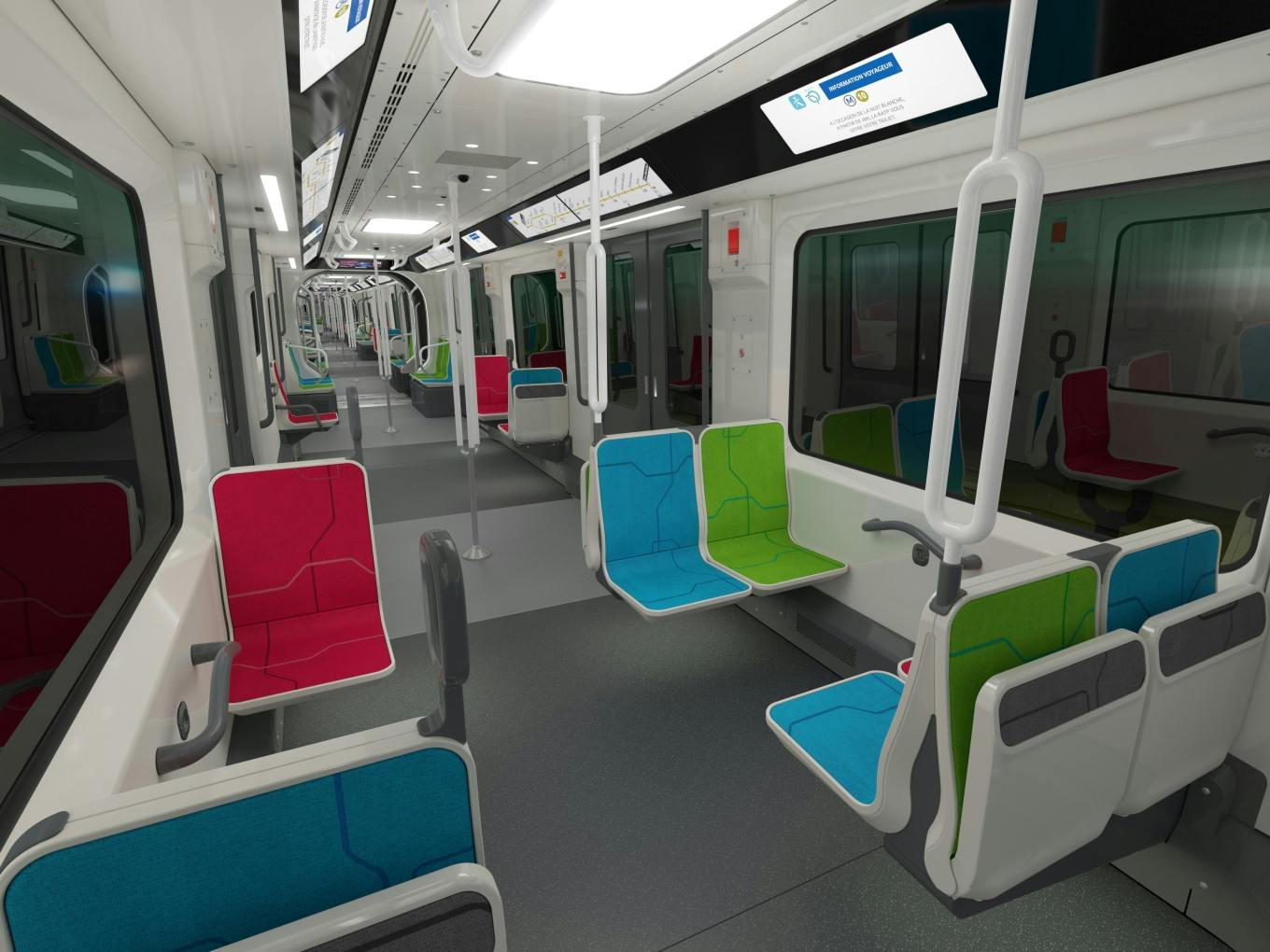
Ile-de-France public transport: a redesigned design
In terms of the design of new equipment, Île-de-France Mobilités anchors transport improvements on the principles of comfort, ergonomics and solidity.
Each vehicle is designed to improve travellers' journeys, by offering different types of spaces, adapted air conditioning, optimised lighting and comfortable seats, in order to make journeys as pleasant as possible, while transporting a maximum number of passengers.
Air conditioning: comfort in sharp progress
In the face of global warming and because passenger comfort is at the heart of its concerns, Île-de-France Mobilités is speeding up the air conditioning of its rolling stock - with 100% of the new equipment equipped.
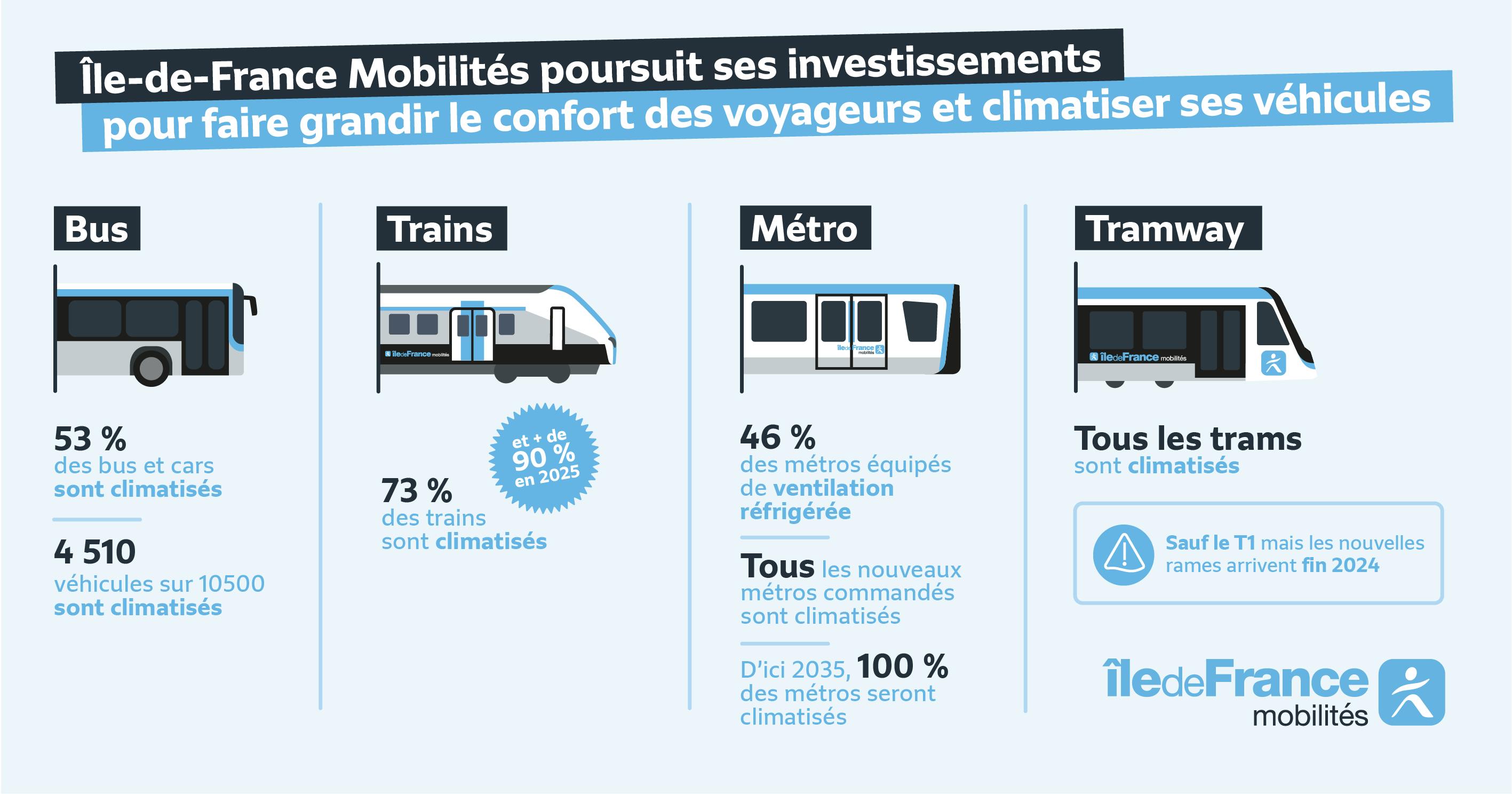
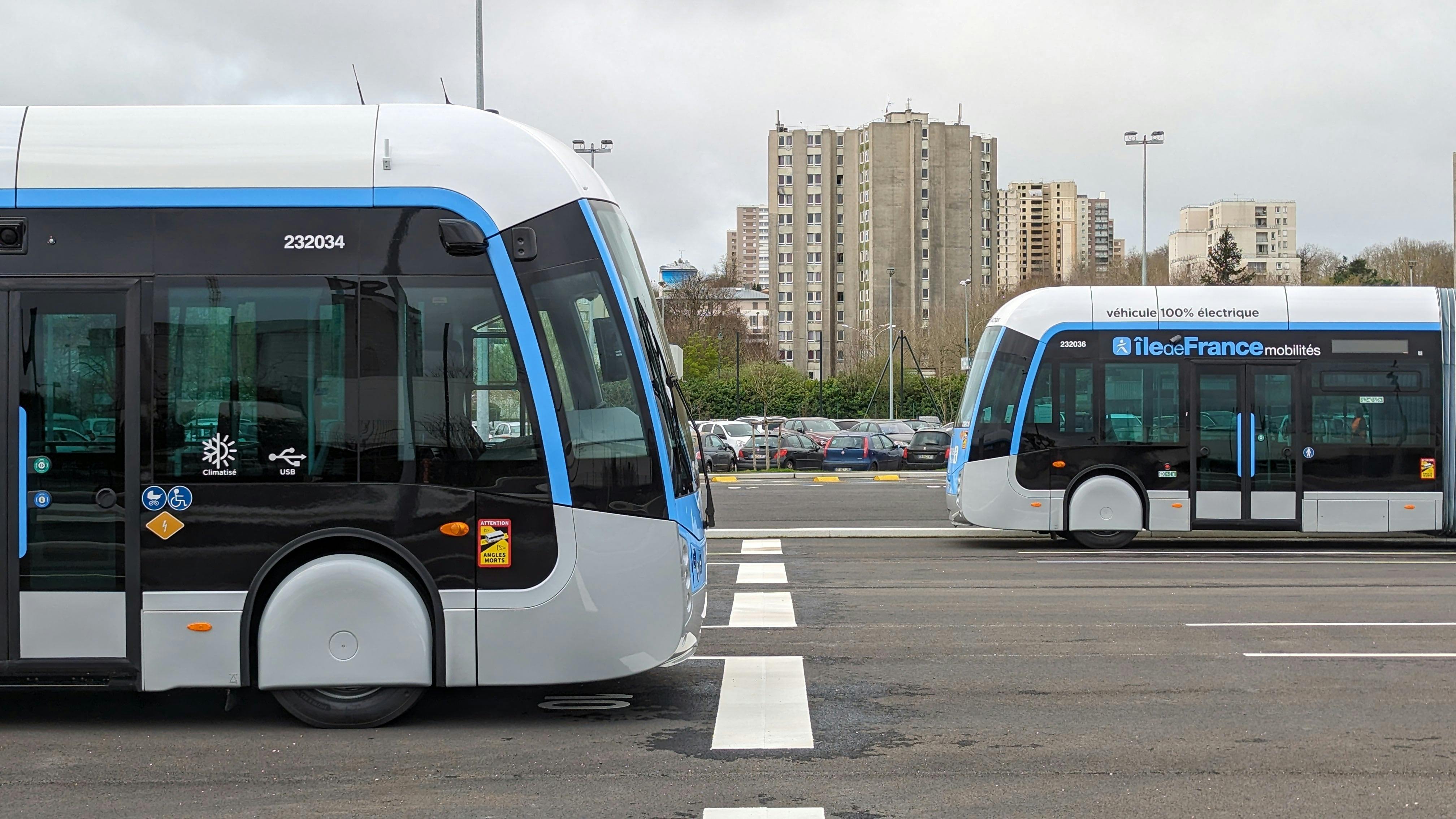
Thinking about innovative mobility
Île-de-France Mobilités is constantly thinking about new modes of mobility. Two-articulated buses or gondolas: the future of travel is being built in Île-de-France!
Tzen 4, C1 cable: focus on two innovative new equipment.
Offering Île-de-France Mobilités residents more reliability, more comfort and modes of transport that respond in an innovative way to the specific needs of their territories: this is the mission of Île-de- Mobilités
For example, the Tzen 4 bus, which will equip the future busiest line in the Greater Suburbs, is a 24-metre 100% electric bi-articulated bus, whose ultra-fast charging by the ground is a world first.
As for the C1 Cable, it will be the first gondola lift in Île-de-France. A new mode of transport in the Paris region, chosen because it made it possible to solve very complex problems in the territory it will serve.

Tzen 4: Still + Big, Always + Clean
24 metres, bi-articulated (three connected elements), fully electric, the future Tzen 4 bus rapid transit will be recharged from the ground in just 5 minutes. A world first.
Running between Viry-Châtillon and Corbeil-Essonnes, the Tzen 4 will welcome 40,000 passengers per day.
Cable C1: Île-de-France seen from above
The C1 cable will connect Créteil to Villeneuve-Saint-Georges via Limeil-Brévannes and Valenton along a route of 4.5 km and 5 stations, with less than 30 seconds between the cabins during rush hour.
Innovative cable transport will provide a concrete response to the daily travel difficulties of the inhabitants of this area by connecting them to metro line 8. Ultimately, the C1 cable will serve more than 20,000 inhabitants and several employment areas.
